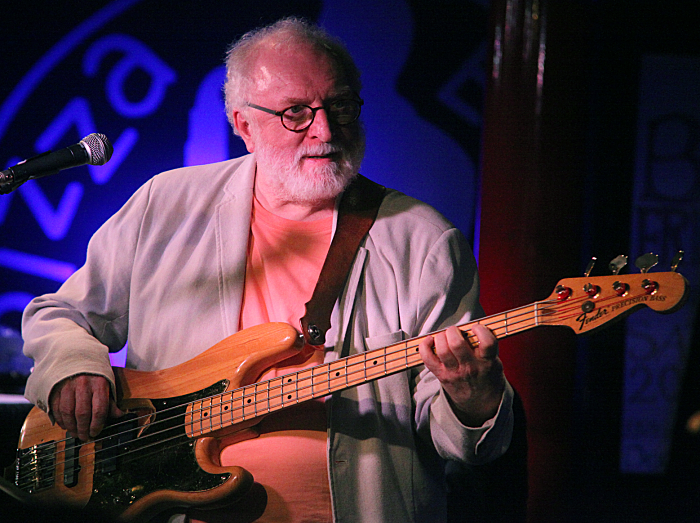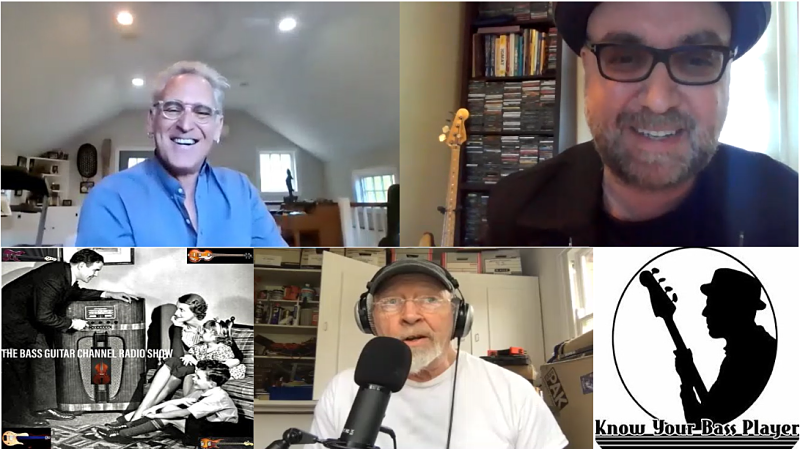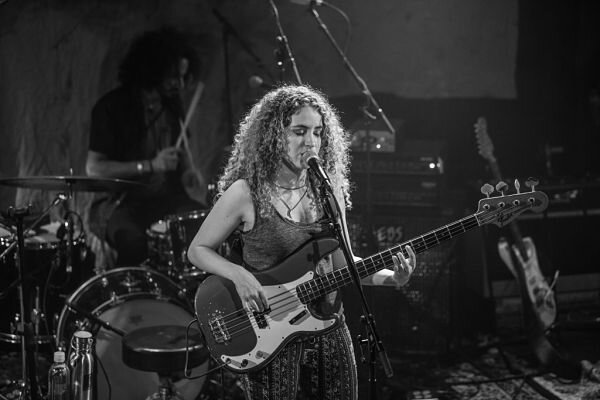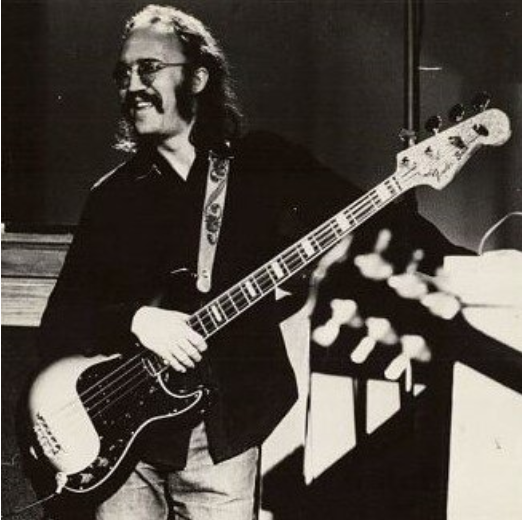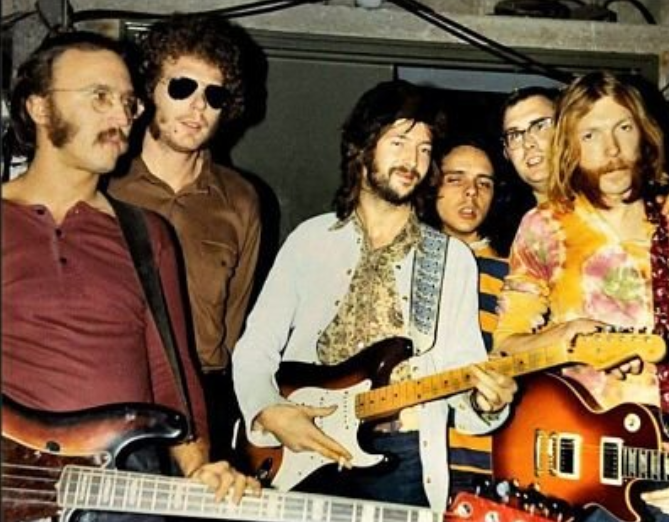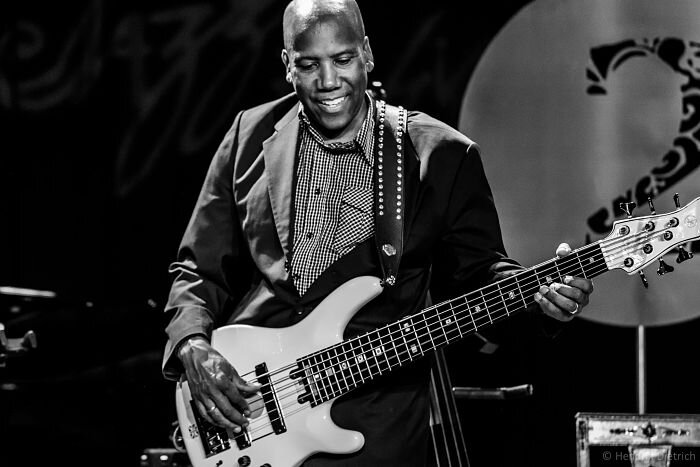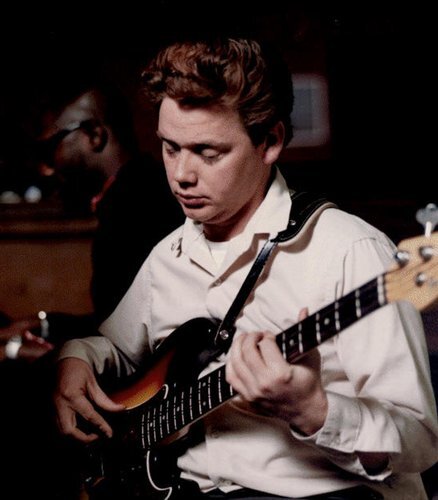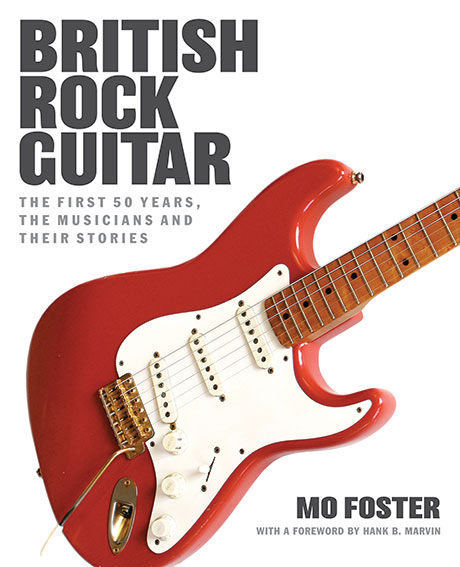
By Tom Semioli / Huffington Post / May 2014
Rock ‘n’ Roll is American music. In the late 1950s there were no UK role models for the electric guitar, except for a middle-aged player named Bert Weedon, who wrote a book at the time called Play In a Day. To learn the guitar we had to listen to solos by James Burton, Cliff Gallup, Chet Atkins or Buddy Holly — either on 78 RPM records, or radio stations such as Luxembourg or Voice of America. In addition, a post-war trade embargo which lasted until 1960 meant we couldn’t buy anything American — how could we play this music seriously without Gibsons or Fenders?” — Mo Foster
From the Baby Boomers who experienced the British Invasion firsthand and started a band, to the seventies teens who rummaged through mom’s closet to approximate the appearance of Messrs. Ferry, Bowie and Bolan in preparation for a high-school gig; to the scores of alienated youth who found salvation in the sounds of Robert Smith’s Fender Jazzmaster — some of us owe our lives, for better or worse, to British rock guitar.
Despite Mo’s above referenced proclamation, along with the general consensus that Americans officially invented rock ‘n’ roll by pillaging bits and pieces of country and blues whist cranking up the volume — and that Elvis was somehow referred to as “King” even in the presence of Chuck Berry — it was the Brits by way of The Beatles who transformed rock ‘n’ roll from adolescent novelty music to an art form that refuses to become irrelevant no matter how hard some celebrated personalities and television networks try. And for the record (pun intended), the Fab Four’s guitar-wielding peers, namely the Rolling Stones, Yardbirds, The Who, Kinks and Animals, made a lasting sonic imprint that the Yanks couldn’t touch. Even Jimi Hendrix had to migrate to London to be noticed. If American impresario Sid Bernstein had not made that historic phone call to Beatles’ manager Brian Epstein, we would have had to suffer through 50th Anniversary celebrations of Pat Boone, The Kingsmen, Bobby Rydell and Bobby Vinton!
Enter UK bassist Mo Foster — renowned amongst musos for his brilliant work in the recording studio and on stage with hundreds of artists including Jeff Beck, Van Morrison, Phil Collins, Gil Evans and the London Symphony Orchestra — and likely several uncredited sampled tracks by hip-hop artists. Mr. Foster has authored the definitive book on a subject that would have otherwise been lost for present and future generations of rockers: British Rock Guitar: The First 50 Years – The Musicians and Their Stories, which is available via Northumbria Press. From present day indie rockers to anyone who played in an amateur or pro band in the past half century, to the most dedicated followers of any permutation of rock’s limitless sub-genres — Mo Foster’s extensively researched and entertaining tome is essential reading.
Through Foster’s own vivid and oft humorous recollections along with momentous remembrances from the most recognizable musicians who were there when it all started, namely Eric Clapton, Paul Rodgers, Richard Thompson, Deep Purple bassist Roger Glover, Ron Wood, Roxy Music’s Phil Manzanera, Mike Rutherford of Genesis, John Lennon, Paul McCartney and George Harrison, to name a few — the reader is transported back to a romantic, adventurous age wherein guitars and amplifiers were fashioned from cigar boxes, tea chests, pencil cases, fuse wire and bread toasters.
For me, it was the realization that every player in Britain, including Jeff Beck and John Paul Jones, endured the same problems of having no access to good instruments — it was a leveling experience.
The images which run through British Rock Guitar are astounding — many of which have never been seen by the general public before.
Initially the photos were from my own collection — but slowly I was able to persuade the cast to look through their own cupboards and let me use the rare photos that turned up — many of which paint a picture of a very different time.
Among the enlightening visuals include: vintage print ads from respectable instrument companies such as Hofner to the countless fly-by-night outfits which sold guitars that essentially fell apart after a few plays; childhood shots of rock guitar maestros Paul Kossoff (Free), Gary Moore, Martin Barre (Jethro Tull), Andy Summers (The Police), Ritchie Blackmore, and Steve Winwood playing their earliest and most primitive instruments; the legends in their formative years — Chris Spedding, Allan Holdsworth, Mark Knopfler, Albert Lee, among others; dated business cards from future icons and obscure rockers; fly-on-the-wall photos from Abbey Road, UK dancehall gigs featuring soon-to-be rock stars, Hamburg’s infamous Star Club; and color portraits of some of the most collectible objects — portable mono record-players, guitar string packets, instruction books — essential to the telling of rock ‘n’ roll’s timeless saga.
Foster, who likely could have enjoyed an equally successful career as a stand-up comic, punctuates this timeless tome with several hysterical vignettes detailing the essence of life as a musician when rock ‘n’ roll was new — first gigs, auditions, tales of the road, toiling in the Red Light District (i.e. the recording studio), pranks on and off the bandstand, and a choice menu of wonderfully wicked quips from fellow musicians in the trenches.
Opines Mo in his postscript:
Fads may come and go, but the guitar is here to stay. It is the perfect accompaniment to the human voice…it was great fun to be around at a time when nobody knew anything, but, in a different way, it is probably just as much fun now. There’s so much more music to play.
Mo Foster – BRITISH ROCK GUTAR published by McNidder & Grace (2013)
